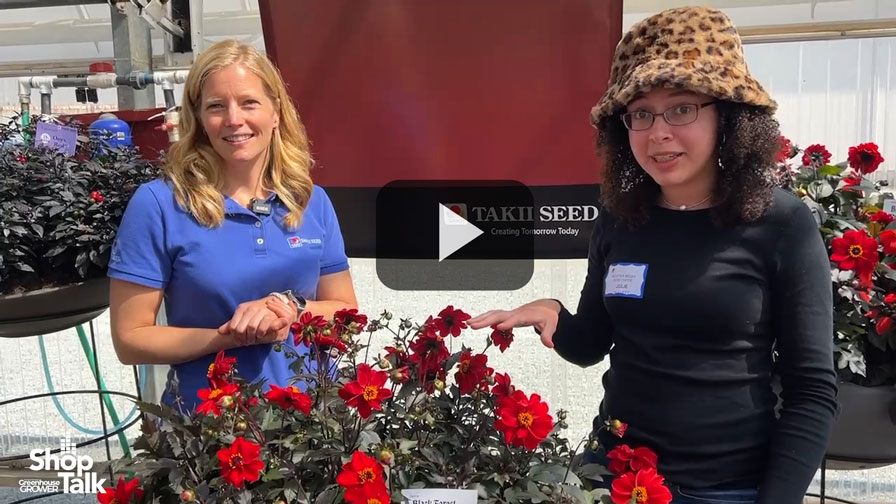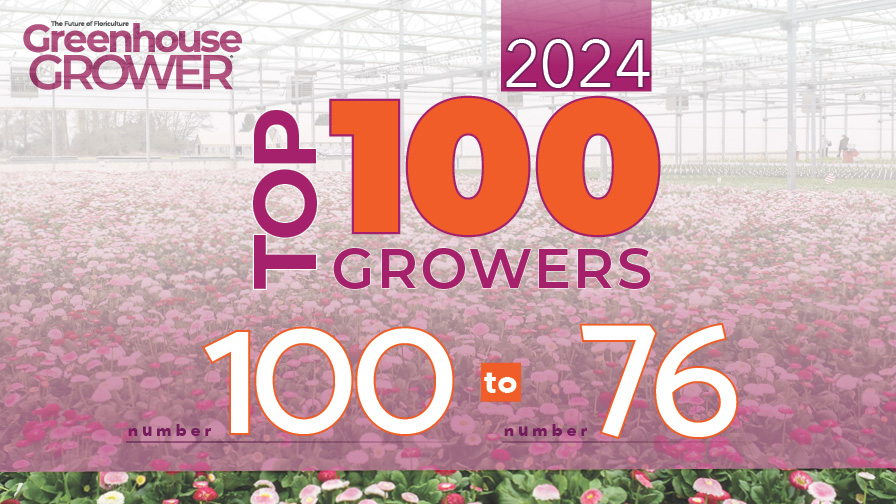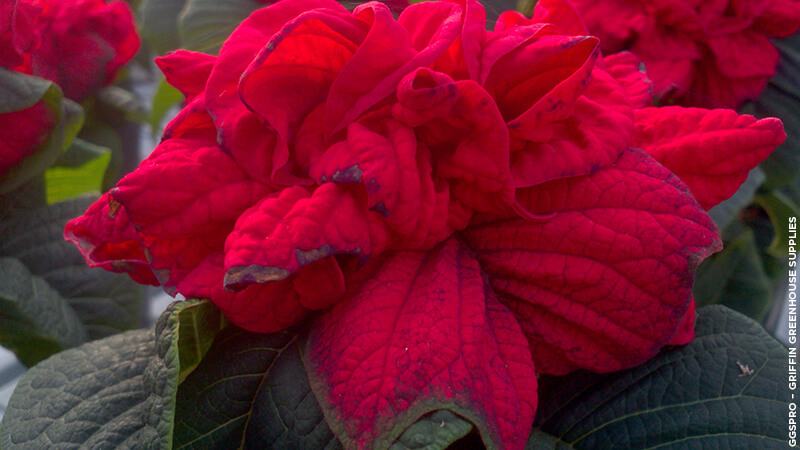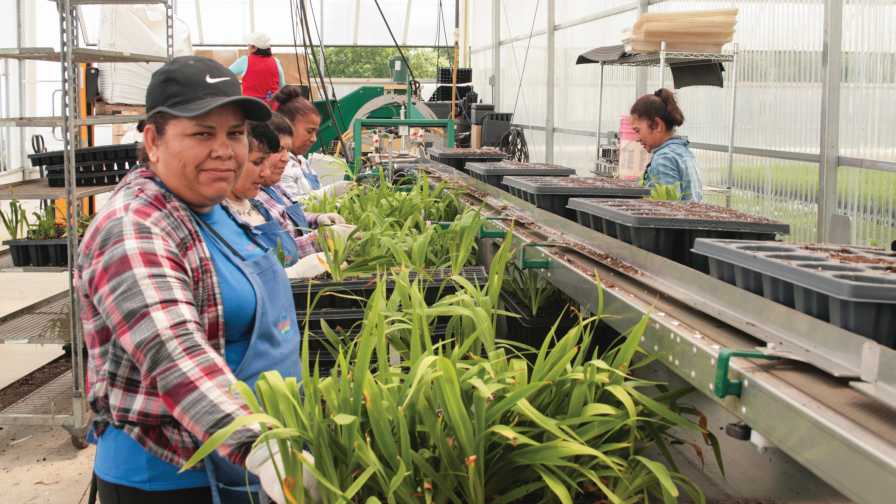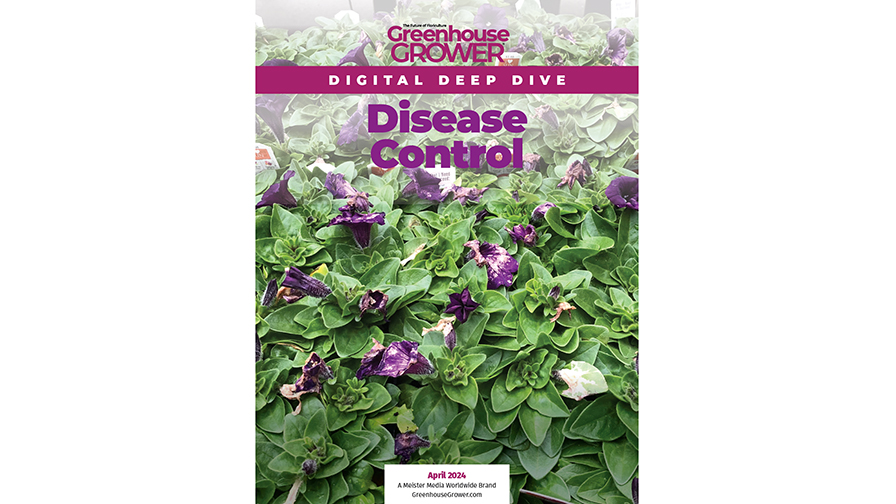Six Questions With Seed Your Future’s Executive Director
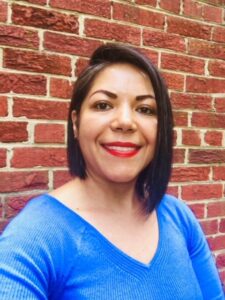
Jazmin Albarran, Seed Your Future
In late February, I caught up with Jazmin Albarran, who joined Seed Your Future in February 2021 as its new executive director. We talked about her background, and the group’s goals for 2023 and beyond.
Brian Sparks: You started with Seed Your Future in the middle of the COVID-19 pandemic. How were you able to ingrain yourself in the horticulture industry over the past two years?
Jazmin Albarran: In 2022 I went to 14 conferences. It was very important in that first year or so for me to get to know that people in the industry, the different sectors of horticulture, and all parts of the supply chain. It’s not just the plant, it’s the container, the inputs, the transportation and more. It’s just mind-blowing, and students may have no idea they can take part in all of these wonderful careers in the industry. We’re trying to work towards getting teachers information about all of these green careers that could be working directly with the plants, but could also be other careers from writing and graphic design to marketing and research. All of those are important and are needed for this industry to be successful.
Brian Sparks: What was your background before joining Seed Your Future?
Jazmin Albarran: My background is in mental health, youth development, and workforce development. When my predecessor Susan Yoder asked me to consider applying for the job, I told her I could barely keep my aloe plant alive. She said the industry will teach you all you need to know about plants, and I should bring the business acumen that would help support Seed Your Future and grow it to the next level. I do believe careers in this industry and plants and flowers impact our physical, mental, and emotional health, so it’s still very in line with my career goal of reaching families and youth reach their best potential. When you love what you do, that is you at your best potential, and I’m so happy that I’m here. One of the motivations that I’ve had in doing what I do is that everyone that I’ve talked to in the last year and a half, they love what they do. When you love what they do, you don’t leave. Even if you move around different companies and roles, you stay in the industry. I’ve talked to people who have been in the industry for 40 to 50 years because they love it. I want the next generation of students to have that same level of career fulfillment. The careers are here waiting for them, and we need them to come in and take over.
Brian Sparks: What are your goals as an organization, especially with the Horticulture Careers section of your website?
Jazmin Albarran: We’re in the process of updating the page with more career information. We want to make sure that it is a functioning resource for anyone that visits the page. We currently have about 137 careers listed. After we get all of the current profiles up to date, we want to start looking at what’s missing, so we can expand it and make it even more robust. We want to make the site more relatable to students, no matter where they see themselves, and get them thinking about how they could be working directly with plants or doing other jobs in the industry.
Overall, Seed Your Future has five focuses: awareness, education, workforce development, partnerships, and resource development. For the coming year, we narrowed our focus down to awareness, workforce development, and resource development. For awareness, we’re going to focus on building relationships with universities and colleges to let them know how we can continue to support them. We have current partnerships with University of Nebraska, Lincoln, the University of Georgia, and Miami-Dade Community College. I’ve heard from many students who say, I’m graduating in May and I don’t have a job or know what I want to do. They are interested in horticulture, but they don’t know how it might translate into a career. While they’re in school and going through that learning period, we want to get them in front of potential employers. If we can get those colleges to visit different companies, or use Zoom, students can start becoming familiar with these companies and the careers those companies have. The more that we can prepare them and make them aware of their options (and we know a lot of professors use that career page), that will help guide the students. That’s one of the reasons we created Green Career Week. During my time here, I’ve heard a lot of people say they want to connect with students, but they don’t know how. With the support of several volunteers, we wanted to create a step-by-step guide for industry members to figure out where they are based on their capacities to start that relationship building. We created Green Career Week in the fall, and the plan is to do it twice a year: one in the fall and one in the spring.
When it comes to our workforce development goal, we have a horticultural salary survey that went out in the fall and we could still use a lot more data. We want to get a real understanding of salaries in this industry. There are a lot of positions where you can make money. We will be hopefully releasing that information later this spring. The survey is 100% confidential. We want people to feel confident with sharing that data with this and knot that we are using it to educate the industry and students deciding whether to come into this industry. The survey covers both salary and benefits. We want look at the entirety of what a company has to offer because this next generation is not just looking at salaries. They’re also looking at soft skills they can gain, and other benefits.
Brian Sparks: There are several emerging markets in this space, whether it’s greenhouse vegetables or vertical farming or cannabis. Are those markets that you’re looking to provide more information on?
Jazmin Albarran: Yea, absolutely. Whatever kind of plant it is, a flower, a shrub, a tree, food, or cannabis, college students who are graduating may be interested in it. We want to make sure that students are aware of those careers. We don’t highlight one over the other. We also want students to know there are businesses that are doing things locally, and there are some that are operating internationally.
Brian Sparks: If I’m a grower that wants to get involved in Seed Your Future, what’s the next step I can take?
Jazmin Albarran: Just send me an e-mail, and we’ll set up a time to talk. We also welcome new ideas.
Brian Sparks: What excites you the most about this industry as you’re learning more about it?
Jazmin Albarran: I did not realize how international it was. As I’m talking to students, a lot of them are saying they want a job where they can travel. What excites me is knowing that whatever students might want to do, we can find it.




